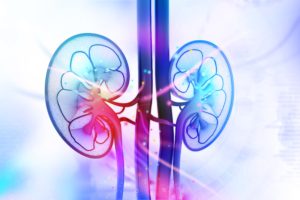 According to a new study from Ball State University, middle-aged people can be as susceptible to falling as older adults if they are diagnosed with chronic kidney disease. The research published in the journal International Urology and Nephrology found that people with chronic kidney disease (CKD) had an increased risk of falls even after adjusting for differences in health conditions, lifestyle factors, and demographic characteristics.
According to a new study from Ball State University, middle-aged people can be as susceptible to falling as older adults if they are diagnosed with chronic kidney disease. The research published in the journal International Urology and Nephrology found that people with chronic kidney disease (CKD) had an increased risk of falls even after adjusting for differences in health conditions, lifestyle factors, and demographic characteristics.
The study found that adults at any age can fall at any time once kidney disease takes hold. Brandon Kistler, a Ball State nutrition professor said, “Numerous physiological changes associated with chronic kidney failure, such as muscle wasting and weakness, may explain the increased risk of falling.” He added “Changes in bone and mineral metabolism causing weak, brittle bones may lead to an increased propensity for fall-related injuries in people with kidney disease, especially those with end-stage kidney disease.”
Advertisement
For the study, Kistler and his team analyzed 186,208 adults between the ages of 45 and 64, including about 5,600 with kidney disease. All patients were surveyed in the Behavioral Risk Factor Surveillance System by the Centers for Disease Control and Prevention (CDC).
Females More at Risk
It was found that more than a quarter of all participants reported a fall within the past 12 months and more than a 10th also suffered an injury. Falls in females with chronic kidney disease were significantly higher compared to their counterparts by 49 percent. The study also showed that the prevalence of fall-related injuries was also considerably higher in females participating in the study by 27 percent.
“People with kidney disease may significantly reduce spills by incorporating exercise into their daily routines. Also, aggressive treatment of other conditions such as depression and arthritis can help reduce falling,” concluded study co-author Jagdish Khubchandani, a Ball State health science professor.
Clinicians should first consider adopting a multifactorial approach to screening for the risk of falling in middle-aged adults,” Khubchandani said. “They should also consider preventive and therapeutic action among high-risk individuals with kidney disease.”
“Not all the variables that we included in our analyses are modifiable. Clinicians should focus on modifiable factors to prevent falls—such as home safety, medication monitoring, and depression treatment—as opposed to non-modifiable risk factors, including age, gender, and history of falls. Education of individuals with kidney disease about the risk of falls and explanation of various components of fall prevention practice should improve compliance, which in turn should lead to better overall health outcomes for middle-aged adults with the disease.”
Advertisement
“Physical function and exercise are potentially modifiable, cost-effective, and evidence-based strategies to enhance mobility,” Kistler added. “Our study suggests that as in other populations, exercise programs that target strength and balance may be an effective strategy for preventing falls and injuries among people with CKD, but prospective trials are needed.”
This study just goes to show the importance of research to link health issues to help physicians offer prevention. More research is needed in chronic kidney disease, but this is a first step towards helping to prevent falls in those susceptible.
Also read:
- Chronic kidney disease diet: Food list, recommendations, and recipes
- Stage 3 chronic kidney disease: Symptoms, diet, and treatment
- Kidney cleanse: How to detox your kidneys naturally
